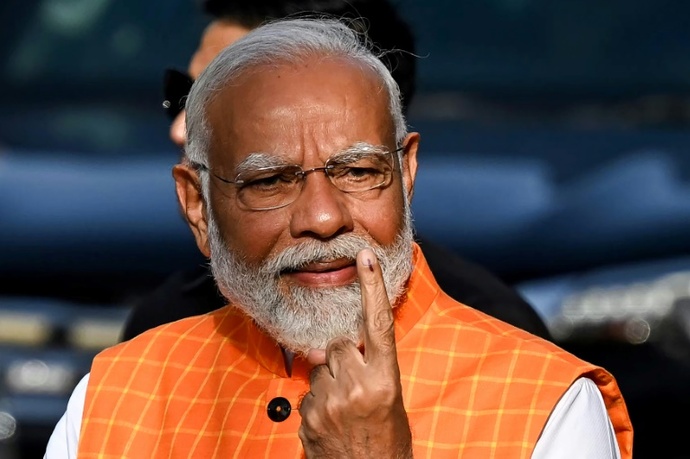
Narendra Modi after casting his vote in Ahmedabad
More than two weeks after the start of India's six-week general election, Prime Minister Narendra Modi cast his vote and asked his countrymen to go to the polls. He called on Indians to “go to the polls in large numbers and celebrate the festival of democracy,” Modi said.
More than two weeks after the start of India's six-week general election, Prime Minister Narendra Modi cast his vote and also asked his compatriots to go to the polls. He called on Indians to “go to the polls in large numbers and celebrate the festival of democracy,” Modi said as he emerged from a polling station in the country's western city of Ahmedabad on Tuesday morning, accompanied by security forces.
Everyone who contributed to the “great ritual of democracy” should be congratulated, the head of the Hindu nationalist government told reporters and supporters.
Nearly a billion people have been called to vote in India's parliamentary elections since April 19. There is no doubt that the ruling BJP will win again. This means Modi could run for a third term. The 73-year-old leader remains popular even after a decade in power; its opponents have been weakened by internal power struggles and politically motivated criminal proceedings.
Voter turnout so far has been lower than in the 2019 election, which analysts say is due to Modi's near-certain victory and above-average temperatures.
Modi was accused of inciting hatred against the country's Muslim minority in his campaign speeches. He described Muslims as “colonizers” and “those who have more children.” Opposition politicians then complained to election authorities. Modi himself accused the main opposition party (INC) of planning to redistribute his country's wealth to Muslim households.
Elections last six weeks and voting is done using electronic voting machines. To enable people in remote areas of this vast country to vote, election officials sometimes travel by foot, by helicopter, by boat, and sometimes by camel or elephant.
HOME PAGE







